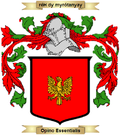Myrotanian verbs
There are 130 verbs in Myrotanian and they follow a conjugation pattern derived from Dutch, with hints and influences from other languages and systems.
Regular Conjugation
Regular conjugations include adding the appropriate ending to the stem. The stem is formed by removing the -en from the end of the verb. Some verbs end in just -n (with a consonant or even a non-e vowel before the 'n'), in such cases, the stem is formed by just taking the 'n'.
Present (Indicative Mood)
- 1st person singular: -e
- 2nd person singular: -s (or -es if 's' doesn't flow or make a sound difference)
- 3rd person singular: -t (or -et if 't' doesn't flow or make a sound difference)
- 1st person plural: -em
- 2nd person plural: -eT
- 3rd person plural: -(e)n (i.e. the infinitive of the verb)
Present (Subjunctive Mood)
- 1st person singular: -é
- 2nd person singular: -yes
- 3rd person singular: -et
- 1st person plural: -yem
- 2nd person plural: -yeT
- 3rd person plural: -yen
Imperfect (Indicative Mood)
This uses the imperfect stem, which is the normal (or crude) stem with the addition of -t (or -et). The following conjugation involves the imperfect stem with the addition of these endings:
- 1st person singular: -e
- 2nd person singular: -ast
- 3rd person singular: -a
- 1st person plural: no ending (uses the imperfect stem)
- 2nd person plural: -sa
- 3rd person plural: -asy
Imperfect (Subjunctive Mood)
There are three irregulars to this: haten, zyn and benyrn.
- 1st person singular: -er
- 2nd person singular: -eré
- 3rd person singular: -er
- 1st person plural: -erm
- 2nd person plural: -eror
- 3rd person plural: -ern
Affirmative Imperative Mood
There are three irregulars: zyn, and'n and kumn
- 2nd person singular: -'
- 1st person plural: -amó
- 2nd person plural: -eté
Negative Imperative Mood
The only irregular is zyn
- 2nd person singular: nó ...-er
- 1st person plural: nó ... -erm
- 2nd person plural: nó ... -ert
Past participle
The past participle is formed by taking the stem and doing to things to it:
- Add the prefix Gy-
- Add the suffix -T
For example; spiln becomes Gyspilt
Irregulars
and'n (to go)
Present (Indicative Mood)
- 1st person singular: wa
- 2nd person singular: was
- 3rd person singular: wah
- 1st person plural: ăwam
- 2nd person plural: andeT
- 3rd person plural: anden
Affirmative Imperative Mood
- 2nd person singular: bă
- 1st person plural: 'nDjam
- 2nd person plural: ăllej
benyrn (to become & auxiliary)
'benyrn' (to become) can also be used to form the future ('will' is translated with the present conjugation of benyrn) and the conditional ('would' is translated with the imperfect subjunctive conjugation of benyrn) and is conjugated irregularly in some tenses/moods:
Present (Indicative Mood)
- 1st person singular: beny
- 2nd person singular: benys
- 3rd person singular: byrn
- 1st person plural: benyr
- 2nd person plural: benyreT
- 3rd person plural: benyrn
Imperfect (Subjunctive Mood)
- 1st person singular: bür
- 2nd person singular: büré
- 3rd person singular: bür
- 1st person plural: bürm
- 2nd person plural: bür
- 3rd person plural: bür
haten (to have)
Imperfect (Subjunctive Mood)
- 1st person singular: het
- 2nd person singular: heté
- 3rd person singular: het
- 1st person plural: het'm
- 2nd person plural: het
- 3rd person plural: het
kumn (to come)
Affirmative Imperative Mood
- 2nd person singular: kom
- 1st person plural: komem
- 2nd person plural: komT
zijn (to be & auxiliar)
'zijn' (to be) is also used as the auxiliary verb (along with the past participle) for forming the perfective aspect (in perfect tenses) and it is completely conjugated irregularly:
Present (Indicative Mood)
- 1st person singular: ben
- 2nd person singular: bes
- 3rd person singular: iz
- 1st person plural: zem
- 2nd person plural: zeT
- 3rd person plural: zyn
Present (Subjunctive Mood)
- 1st person singular: zy
- 2nd person singular: zys
- 3rd person singular: zyt
- 1st person plural: zym
- 2nd person plural: zyT
- 3rd person plural: zyn
Imperfect (Subjunctive Mood)
- 1st person singular: wer
- 2nd person singular: weré
- 3rd person singular: wer
- 1st person plural: werm
- 2nd person plural: wer
- 3rd person plural: wer
Affirmative Imperative Mood
- 2nd person singular: bé
- 1st person plural: zijm
- 2nd person plural: zy
Negative Imperative Mood
- 2nd person singular: nó esser
- 1st person plural: nó essem
- 2nd person plural: nó zijrT
Irregular Stems
- dóben: Deb
- konen: kan
- lan: lés
- tóten: tort
- vatSen: văc
Irregular Imperfect Stems
- and'n: ginG
- avhorn: horav
- Bekumn: Bekam
- benyrn: bend
- Bewégen: Bewag
- braH: bruH
- haten: hab
- konen: kunt
- kumn: kam
- lan: las
- naten: nóten
- resten: rist
- Sicen: Sac
- SnayDen: Snit
- tóten: tat
- vatSen: vetS
- woln: wólt
- zyn: waz
Irregular Past Participles
- and'n: ălé
- avhorn: avGyhorn
- Bekumn: Bekumn
- Bewégen: Bewüg
- benyrn: benür
- braHn: GybruHen
- dóben: Gydub
- haten: Gyhat
- konen: kunen
- kumn: Gykumn
- lan: Gylés
- nahmen: Gynóm
- naten: nüten
- resten: resté
- Sicen: GySic
- SnayDen: GySnit
- vatSen: vét
- woln: woln
- zyn: GywésT
External links
 Empire of Myrotania |
Government
The Law of Myrotania • Monarchy • Foreign relations
Thomas I • History • Religion • Language • Alphabet • Politics  |
|---|